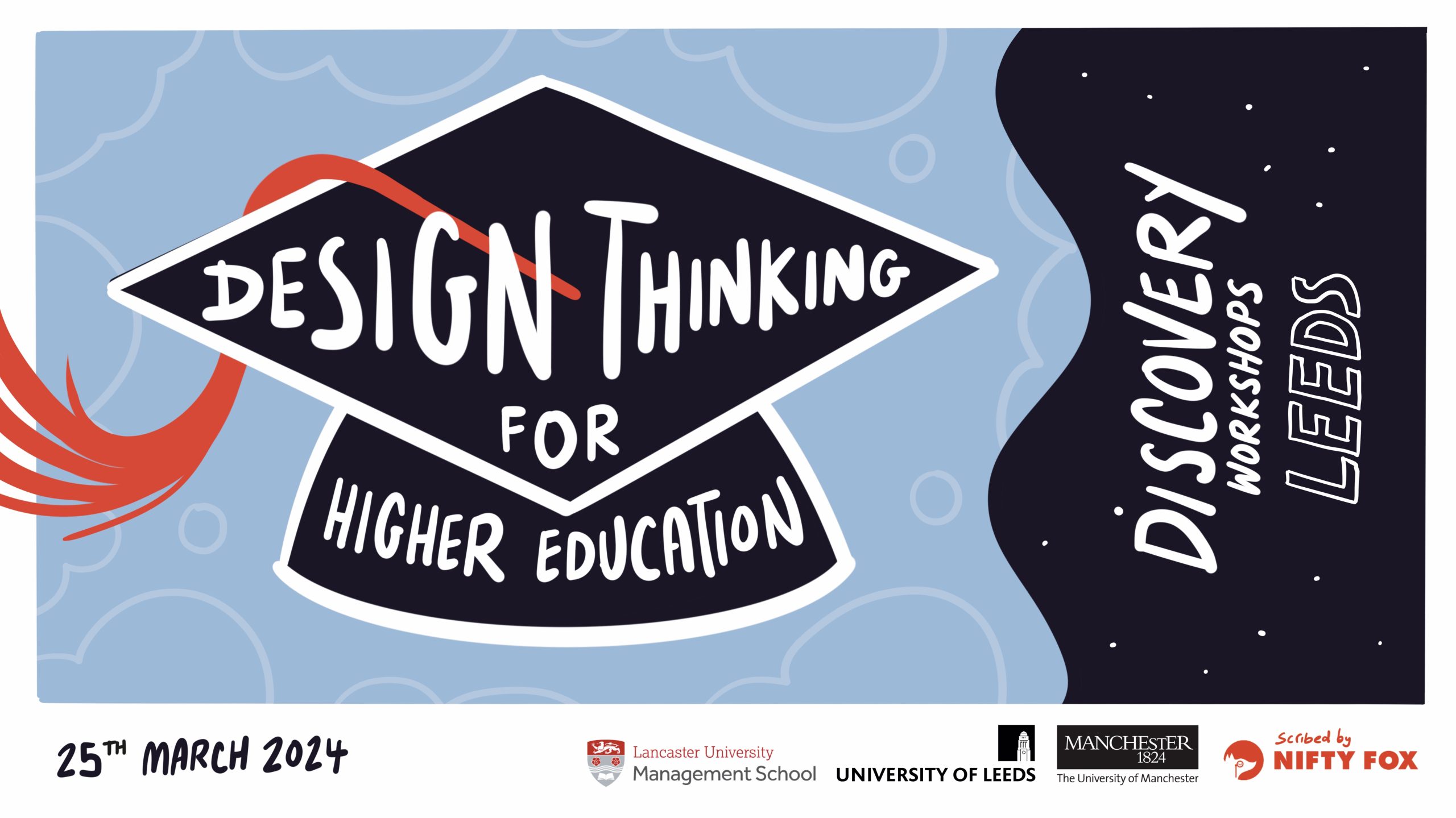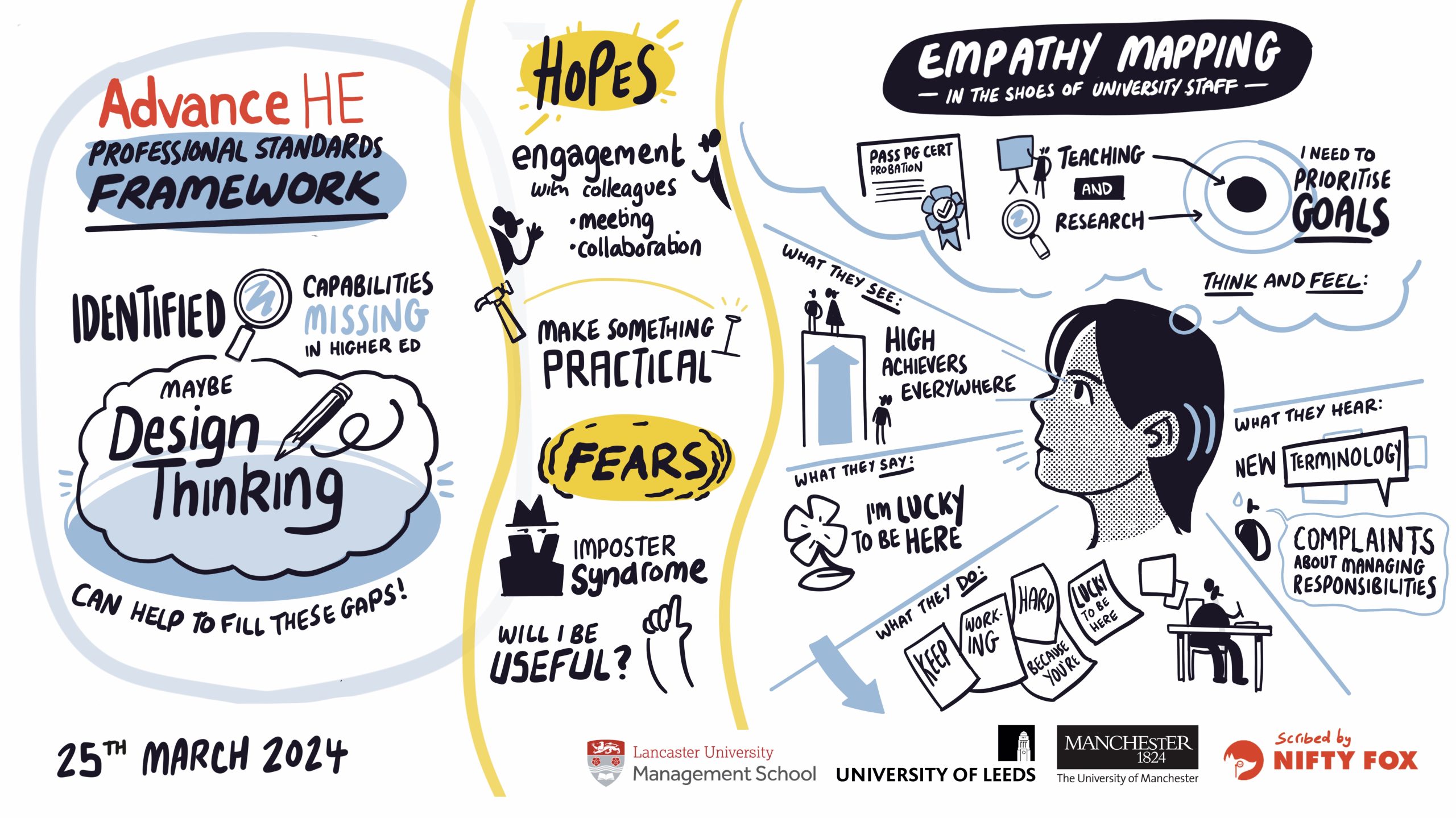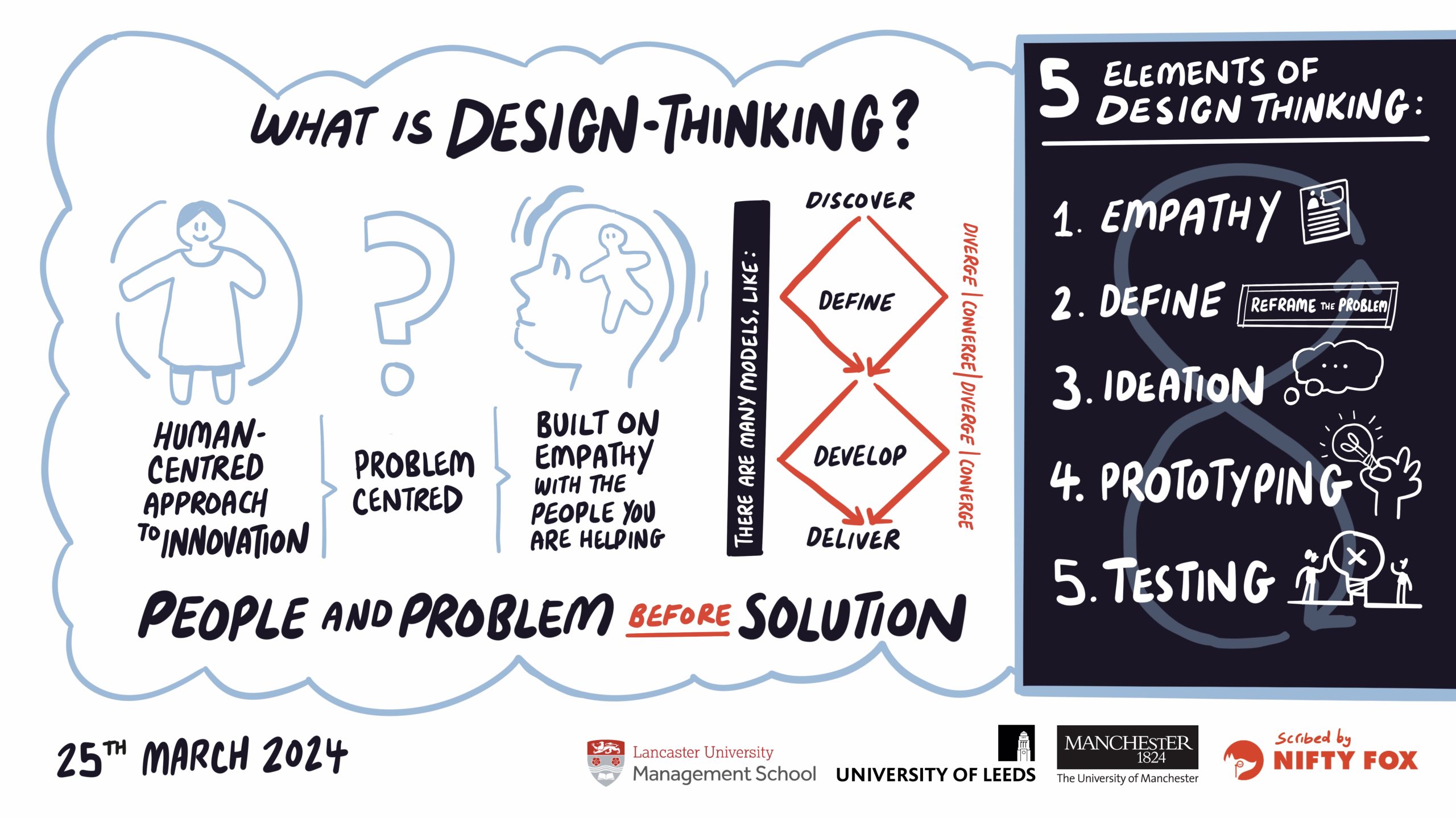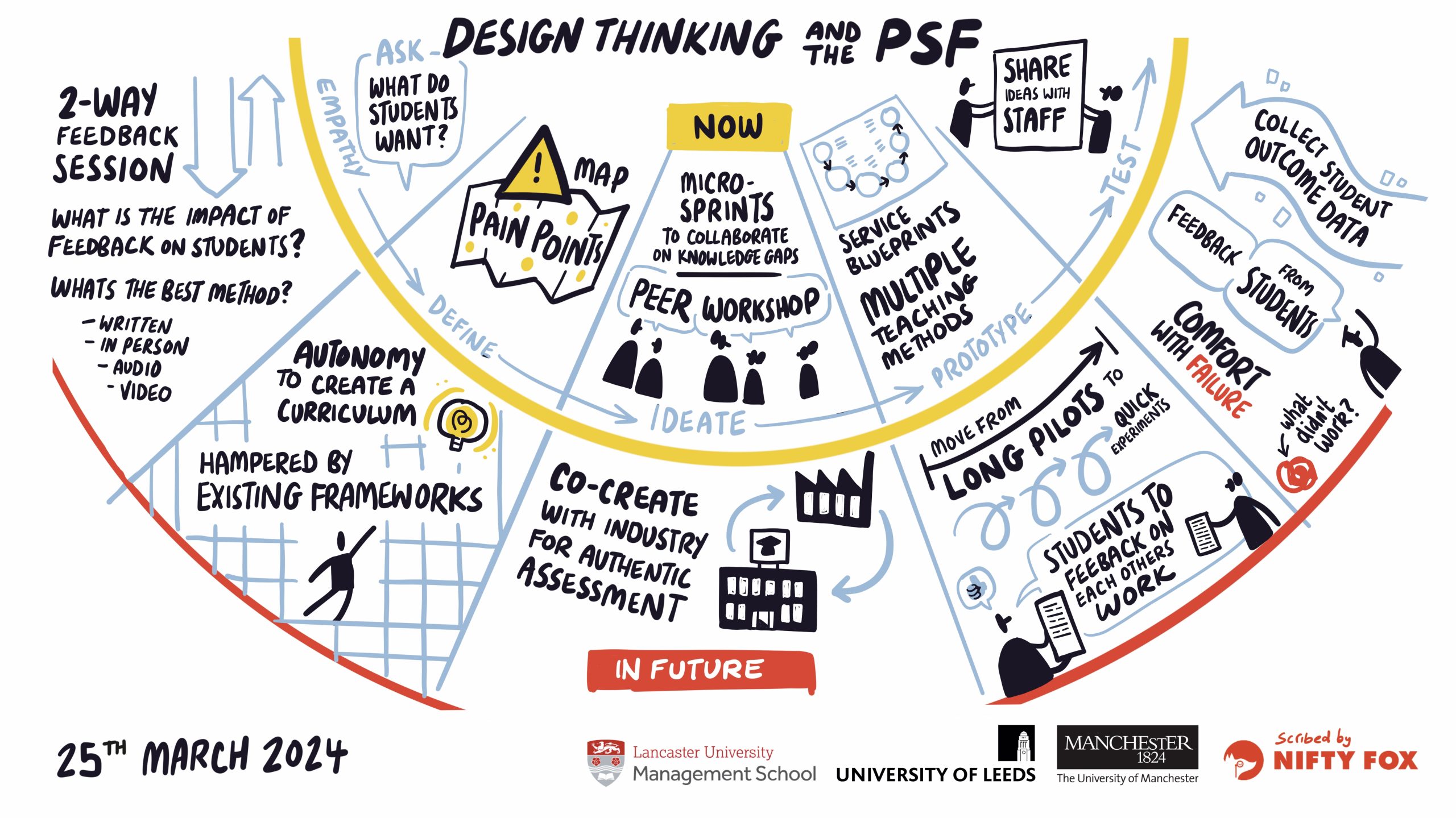Collaboratory 1: DISCOVERY
25th March 2024, University of Leeds (35 colleagues from the HE sector and design organisations).
Objective: Introduce people-centred design, build empathy for the experience of working with the Professional Standards Framework and explore people-centred design as an approach to the framework.
All images in this section have been created by our project partner Nifty Fox during the first collboratory depicting our discussions and providing visual documentation of the participants input.
How did we get on?
 What did we want to discover?
What did we want to discover? Our first collaboratory was aimed to bring diversity of educators together and gauge the potential value of design thinking in relation to our practice reflections through Advance HE Profession Standards Framework (PSF 2023).The whole project team quickly realised the challenge we set ourselves to tackle but the energy in the room on that typical rainy northern day was simply electric. Put in the words of one of our participants:” Inspiring and uplifting. It was fantastic to get out of the day-to-day and to meet, learn and be inspired by such a lovely group of people. I was (very pleasantly) surprised by the diverse roles in the room (education developers, lecturers, support staff, consultants etc) and really valued the different perspectives.” The important element was to demonstrate the power of visual communication that is facilitated in this project by the Nifty Fox team. Visualisation in Higher Education enables different way of looking at the world, beyond the traditional text heavy documentation. It was great to see that our participants picked up on this designerly technique: “Artist as communicator. The excellent work of Chris was eye opening: the power of observation and distillation “in the moment” is something I will take forward into my own practice.”
 Fears and hopes
Fears and hopes Attending a new learning experience may evoke different feelings in participants, just like when our students first walk into our lecture or seminar. Starting with sharing our fears and hopes showed mature vulnerability and ability to say: I am worried I won’t be able to contribute! I know nothing about design! Creating an inclusive space for everyone was very much on our minds. Our fears and hopes led us to explore empathy, the design thinking principle we believe is ever so important. How do we relate to empathy in education? What do we imagine under this word? Using the Empathy Canvas we had a go at empathizing with three diverse personas representing colleagues who are aspiring for Advance HE fellowship. How easy was it? Well, summarised by one of our participants: “The process of understanding the user is deeper than originally imagined”.
 So what is design thinking (DT)?
So what is design thinking (DT)? Design thinking has many different interpretations and models. Even in our project team we all follow different approaches. But what brings us all together is the focus on: people-centeredness, multidisciplinary, participation, experimentation and collaboration. No matter what model you chose, those guiding principles do provide an underpinning context to PSF 2023 that aim to ensure good educational practice and excellent student experience. It was heartening for all of us to note that: “We’re all using DT, even if we don’t know it…It was lovely to see people realise that some of the things they were already doing, were examples of DT in action.“
 5 minutes of silence
5 minutes of silence “Really powerful technique to enable and empower the reflectors in the room…” The five minutes that we gave to ourselves ahead of each group debate to reflect individually on the relationship and possible connections between DT and PSF 2023 created a truly deep reflective practice. We were then able to follow in shared debates over a synthetising template developed for the workshop that got people up on their feet and around the table. Mapping DT onto PSF 2023 has proven challenging, eye-opening and indeed very thought provoking. Exactly as one of our participants put it: “It was surprisingly hard to map DT activities onto the PSF. I think this is because DT is all about ‘making stuff better in the service of people’ and the PSF (if I’ve understood it correctly) is about setting standards. These standards should help to make education better, but in and of themselves, they are not challenges that need to be solved.” The constant switch between diverging and opening up our minds and converging together with our groups made this a very worthwhile exercise and we all came out of this somewhat….re-enersgised with our brains properly teased! We encourage you to replicate this activity in your institutions – instructions for the activity are available HERE. Let us know how you get on!
Feedback and insights are available on the Padlet board HERE. Presentation from the Collaboratory can be downloaded HERE